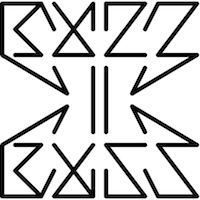Stephen Mallinder (Cabaret Voltaire): I Work to Live and I Live to Make Music (interview)
Teaming up with fellow Sheffield mates Richard H Kirk and Chris Watson to form Cabaret Voltaire in 1973, Stephen Mallinder helped invent electronic dance music, carving out templates that would influence future pioneers from New Order to Derrick May before they themselves inspired an army of producers.
Chatting to Skrufff 9 years ago, Cabaret Voltaire band-mate Richard H Kirk recalled how they started making music for fun, landing their first record deal with Rough Trade in 1978 just as the first wave of punk faded. So when did he first start taking making music seriously?
“I don’t know that making music is all fun or all serious – it’s like life, it becomes very rich in its complexity but there has to be enjoyment and fulfilment or why would you do it?” says Stephen (or Mal as he’s universally known).
“And as I can’t survive purely on making music anymore I would say the fun is as vital now as it ever was,” he continues, “I have to work to live and I live to make music because I enjoy it.”
The music he’s nowadays making includes soon to be released brand new album Can You Hear Me Mutha? a fiercely eclectic though accessible selection of tunes he’s made with Fila Brazil producer Steve Cobby. Produced under the monicker Hey Rube! The album comes out on Steel Tiger Records in October and while Cabaret Voltaire was reputedly inspired by the Swiss Dada Movement club of the same nam, this time round both band and album names were chosen quite differently.
“They made us laugh,” he admits, “Hey Rube! was actually our 4th band name after Barney Mullhouse Orchestra, Light Programme, and Pompos.”
“As far as the music is concerned, we have vision but no particular plan or final objective, it’s purely about the process and seeing where we end up,” he continues. “When you hear the album you will understand the title – and its irony.”
Skruffff (Jonty Skrufff): “The album took 4 years to make: why didn’t you release the tracks as singles earlier; why wait until now and put them all out as an album?
Stephen Mallinder: “We worked sporadically because of other commitments, we live in different cities – 400 miles apart, we weren’t in a rush, and we didn’t have a strategic plan. I don’t really know what a single is, or an album for that matter – it’s the free flow of music in a digital world, past rules or paradigms aren’t necessarily relevant (if you don’t want them to be). It was just nice to select a number of tracks to release together on a CD.”
Skrufff: The press release references Cabaret Voltaire in the first line: how conscious were you of people’s expectations when writing?
Stephen Mallinder: “I have no idea of other people’s expectations whatsoever – as Cabaret Voltaire we made a very broad spectrum of sounds and ‘music’ so I always assume the subjective takes over – everyone probably likes a particular period, or style of music from the Cabs and hates the other stuff so I tend not to worry about it. You can’t please everyone, nor fulfil their expectations.”
Skrufff: Why did you and Steve first decide to collaborate together?
Stephen Mallinder: “We have known each other for nearly 30 years and have worked together for about 15 years – I licensed and released Fila in Australia, and we did Barney Mullhouse together with Man from Fila – we are very good friends and working together is an extension of that.”
Skrufff: The clown artwork on the the new album is interesting: particularly since the FBI recently classified Insane Clown Posse fans as a street gang: how familiar are you with Juggalos?
Stephen Mallinder: “I wasn’t familiar until now so thank you for that – very interesting. The cover is a continuing story from Simon & Garfunkel to Kruder and Dorfmeister and now Hey Rube (K & D are cool with it but not heard from S&G) – it was an Ian Anderson (Designer’s Republic) concept – I personally hate clowns (check the Clowns track on Amateur Night the album I did with Shaun Ryder) and can’t look at the sleeve.
Skrufff: So I guess you have never gone out in public dressed as a clown?
Stephen Mallinder: “Because before I find clowns disturbing – I think most people do in a Stephen King kind of way – but the make-up wouldn’t come off after that particular photo session so we went out that night for a drink with clown make-up on – it was in Sheffield so no one took any notice.”
Skrufff: When I interviewed Richard H Kirk the way he described Sheffield was pretty grim; to quote him:
“I used to make my own clothes and print fabrics and customize things. A lot of it was about being on the dole (unemployed) or at school and not having the money to buy designer fashions, instead you could buy stuff from second hand shops or army surplus stores and customize or paint them. That was very much part and parcel of Cabaret Voltaire, the whole confrontational thing about dressing in a manner that is going to be provocative to people.”
Skrufff: How much were you a misfit/ outsider growing up there?
Stephen Mallinder: “Maybe that was Richard’s take on it, I don’t know that it was grim, it was just life at that time. We didn’t have money and the term ‘designer’ hadn’t even been conceived then – making your own clothes, music, and entertainment was how we lived – it still is, although I don’t tend to make my own clothes but I still trawl through second hand shops . . . That’s called style.
Skrufff: What were some of the more extreme costumes you wore?
Stephen Mallinder: “Richard once performed with a jacket that had fairy lights stuck on – funny but not very practical as he couldn’t move far from the power socket. I’ve never dressed in any comedy outfits or costumes - I like to think there’s a bit of quality there, I hope I looked different but not affected. It didn’t take much to be different but I suppose we did probably look unusual going to rough pubs dressed as we did.”
Skrufff: How did your parents react? And how about girls? (did extreme dressing aid your powers of attraction? How did it change you?)
Stephen Mallinder: “There was only my mum and she just accepted me as I was, we were working class and tolerant. I wouldn’t be crass and discuss the ladies but I’ve never had problems in that department.”
Skrufff: Richard also noted how ‘you were running a fine line between being provocative and getting the shit kicked out of you by football hooligans or whatever monsters were running around Sheffield town centre in the mid seventies’: did you get beaten up/ punched much?
Stephen Mallinder: “Ha ha . . . Originally we were football . . . well not hooligans but bad lads. Richard and I first met at matches and were... mmm I shouldn’t say skinhead because it was before that period but we wore mohair suits and looked the part. We ran the gauntlet with some groups of youths but we knew others who we pretty tough as well so it all worked out OK. We had a few close calls but no serious injuries.”
Skrufff: As Cabaret Voltaire, you also regularly played live with Joy Division: how aware were you then of how influential they’d become? What was Ian Curtis like as a person?
Stephen Mallinder: “They always kinda’ had something special – a sound that cut through, very zeitgeist – and Ian was quite devastating on stage, mesmerising perhaps. A very quiet and charming guy off-stage. We were very good friends with the band and I’m still in touch – my daughters have just been hanging out with the band in Australia. No competition – we were different but complimentary bands if anything.”
Skrufff: What did you make of the whole electroclash scene when London club nag, nag, nag, became the hippest club in town in 2002? When did you first learn of it? How much impact did it have on your life?
Stephen Mallinder: “I wasn’t living in London at that time but was in Australia, so it was odd as I was watching from a distance but I was playing and DJing a lot so was very aware of Nag Nag Nag. It was good and flattering, just as the Sensoria Festival is nice as it is a kind of acknowledgement for what we’ve done.”
Skrufff: You’ve always pursued a very singular uncompromising path throughout your career, have you ever had moments of doubt, or been tempted to try and make an out and out commercial record?
Stephen Mallinder: “I think they’re all commercial, it’s just other people don’t.”
Skrufff: With the benefit of hindsight- is there anything you’d have done differently during the Cabs’ era?
Stephen Mallinder: “Maybe avoided a couple of management deals, and not signed to EMI - although we did get our way and worked with Adrian Sherwood, Marshall Jefferson and Derrick May so maybe not all bad with that one.”
Skrufff: You moved to Australia for many years then returned several years ago to live in Brighton, why? And why not Sheffield?
Stephen Mallinder: “I missed England and Europe in general but I need to be near the water. I was only supposed to be in Brighton for 12 months but I’m still here – but I’m in Sheffield regularly – and I go back to Australia so perhaps I’m a citizen of the world (cough).”
Skrufff: What do YOU feel has been lost as we have moved to predominantly digital forms of performance / playing live/ DJing?
Stephen Mallinder: “Ha ha ... Touche !!! I don’t think anything has been lost – it’s a mixed economy so to speak. I miss vinyl but then again I love using my laptop to DJ. And we also have the ability to play analogue instruments but stream the music over the net so much gained in the live arena.”
Hey Rube! Can You Hear Me Mutha? STEEL TIGER RECORDS is out in October; click below to hear snippets and pre-order the album:
http://www.kudosrecords.co.uk/release/ST013/Hey_Rube_Can_You_Hear_Me_Mutha_.html





